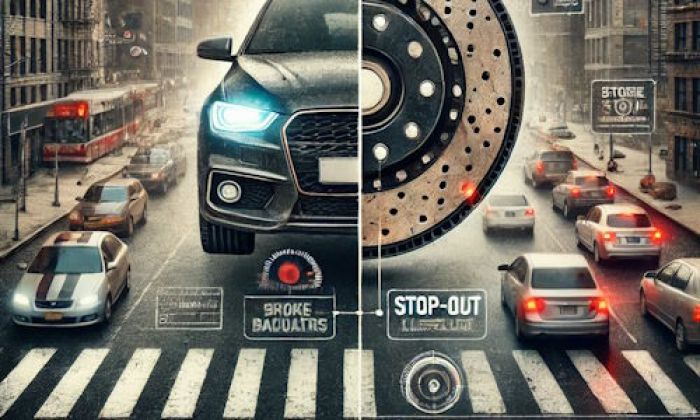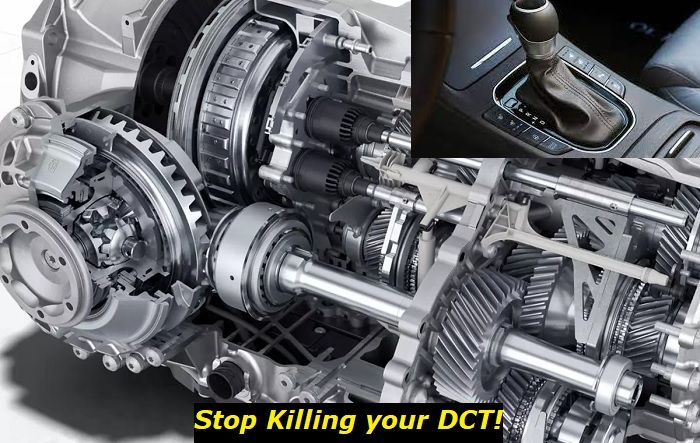The problems with an internal combustion engine are very serious and deserve your attention once they pop up in your car. These issues can easily kill the engine and cause other fatal issues in the vehicle. You need to react promptly if you don't want to pay for engine replacement.
In this article, I will tell you more about the engine problems that weren't categorized and listed within other engine issues categories and articles on this blog. I just want to recap the work I've done with my team and systematize the article so that you can find information about a certain problem easily.
.jpg)
Various engine electronics problems
Modern vehicles basically consist of electronics. Earlier, if a gas pedal stopped working, you would search for mechanical issues. Now, it's a purely electronic problem with a sensor or a control module.
Also, immobilizer issues are totally electronic now and rely only on sensors. I can bet that if you don't see RPM signals when revving up the engine, this has nothing to do with physical connections. This is a purely electronic issue with the gauge or control unit.
The same comes to my mind when people ask about the issues with the oil gauge. It may be at zero or it may show some abnormal figure just because there is a glitch in the electronic control system.
To cut the long story short, electronic problems can cause almost any issues with your vehicle nowadays and they are pretty hard to locate and solve.
Engine electronics problems highlights:
- Level of urgency:Medium
- DIY inspection:Very complicated
- DIY repair:Impossible
- Cost of repair:$250 - $450
- Can you drive?Usually, yes
- Commonreasons:Electronic control modules failure, electrical contacts problems, wiring issues, software problems
- Ways to fix:Usually, professional inspection and repair needed only
Engine exhaust problems
Exhaust issues are very serious and can lead to engine stalling and not starting due to emission system commands. In most cases, you can't drive when your exhaust filter is full in a diesel vehicle. Just because there are software limitations. Or you can drive at 5 MPH at max.
Also, diesel engines are notorious for clogged EGR systems. EGRs are now very common on gas cars, too. And they are very faulty, especially when it comes to EGR cooling.
But there are also traditional issues that don't cover the super modern equipment. Like the silencer problem in Ford cars. Or there is a very traditional problem with the O2 sensor. When you see the white tip of the sensor, it doesn't always mean it's faulty. The entire exhaust system and catalytic converter should be checked first.
Engine exhaust problems highlights:
- Level of urgency:Medium
- DIY inspection:Possible but complicated
- DIY repair:Impossible
- Cost of repair:$350 - $1,500
- Can you drive?Usually, yes
- Commonreasons:EGR issues, catalytic converter problems, O2 sensor issues, exhaust pipe problems
- Ways to fix:Locating and replacing the part that is malfunctioning
Engine idling problems
Long idling is not really good for some engines as the oil pressure falls. But I know people who accidentally left their vehicles idling overnight, and the cars are still OK. Still, it's not a good idea to run a car for a long time without purpose. This is especially bad for bigger engines of the old type.
One of the most common issues with idling is the rough and harsh work of the engine. Things get worse when your engine may also stall occasionally. This may tell you about electronics issues, sensor problems, and bad connections. Or also about internal damage to your engine. Usually rough idle and stalling are hard to diagnose so professional help won't hurt.
Things get even worse when your vehicle misfires when idling. If you are lucky, the problem may be with a spark plug or ignition coil. Also, fuel pressure should be checked. But in these cases, you should see codes and check engine light will be on. If there are no codes, this may tell you about serious engine damage.
Now, what should be the idling RPM? Depending on the car model, it should be between 700 and 900 revs per minute. The first thing to check if it's wrong is the IAC valve - Idle Air Control. Also, the throttle position sensor may be the reason. But these are not the only problems causing bad idle speed.
In a carbureted engine, you will need to adjust the idle screws for proper idling. And you may also need professional help for this.
Engine idling problems highlights:
- Level of urgency:Low
- DIY inspection:Possible but may be complicated
- DIY repair:Sometimes, possible
- Cost of repair:$150 - $600
- Can you drive?Yes
- Commonreasons:IAC valve, throttle position sensor, MAF sensor, carb problems, fuel pressure issues, air supply problems
- Ways to fix:Adjusting the system or replacing the faulty sensor or another part thatis diagnosedto be bad
Engine power problems
One of the most common issues with a modern engine is the lack of power. It may be minor, so you may not even notice it. Larger issues are hard to put up with because your car may barely accelerate to a city-driving speed.
The first thing to check is the limp mode. This is the programmatically limited speed for saving your engine or transmission. Such limitation happens when there are issues detected by the engine control module or other modules. And your vehicle thinks the issues may affect the expensive units of the vehicle.
There are exotic theories like a bad pulley causing low power or various brake-problem theories that aren't worth checking at first.
In most cases, the loss of power is backed up by one of the following issues: fuel supply problems, air supply issues, compression in the engine, electrical problems, glitches in the software. This is not the entire list of possible issues causing low-power problems in cars, but these ones are worth checking.
Also, you should distinguish between just losing optimal power and not being able to move your car from its place at all. The latter case may show problems with the transmission or drive shafts. But engine issues shouldn't be excluded either.
In older vehicles, there may be carburetor problems when they struggle to go uphill or accelerate properly. If the carb hesitates, it should be serviced. There are many issues that can cause this symptom.
Engine power problems highlights:
- Level of urgency:Medium
- DIY inspection:Possible but may be complicated
- DIY repair:Sometimes, possible
- Cost of repair:$200 - $650
- Can you drive?In most cases, yes
- Commonreasons:A largelist of reasons, including fuel and air supply, electronics, glitches, but not limited to those.
- Ways to fix:Use code scanner to locate the problem and solve it
Engine replacement problems
In modern vehicles, it's not that uncommon that the engine may require replacement after high mileage or serious damage. You are very lucky if the warranty covers your engine replacement. Otherwise, you will have to pay thousands of dollars for this.
It may also take ages for the dealer to replace the engine since they have to order it and wait for it to arrive. And a lot of dealerships are known to deny warranty-covered engine replacement. They will try to repair your engine multiple times till you are out of warranty and then you will have to pay for the replacement from your own pocket.
Kia and Hyundai are known for really questionable engine quality. And their dealers are known for a lot of cases when they deny engine replacement. But those are not the only brands who do this.
If it's about replacing the engine in an old car, you will need to weigh all the pros and cons and consider all the costs that you will need to cover. Sometimes, it's just not worth it.
Engine replacement problems highlights:
- Level of urgency:High
- DIY inspection:Impossible
- DIY repair:Impossible
- Cost of repair:$3,000 - $6,500
- Can you drive?No
- Commonreasons:Fatal engine failure, timing belt/chain jumping, overheating, poor lubrication
- Ways to fix:Professional engine replacement
About the authors
The CarAraC research team is composed of seasoned auto mechanics and automotive industry professionals, including individuals with advanced degrees and certifications in their field. Our team members boast prestigious credentials, reflecting their extensive knowledge and skills. These qualifications include: IMI: Institute of the Motor Industry, ASE-Certified Master Automobile Technicians; Coventry University, Graduate of MA in Automotive Journalism; Politecnico di Torino, Italy, MS Automotive Engineering; Ss. Cyril and Methodius University in Skopje, Mechanical University in Skopje; TOC Automotive College; DHA Suffa University, Department of Mechanical Engineering






Add comment